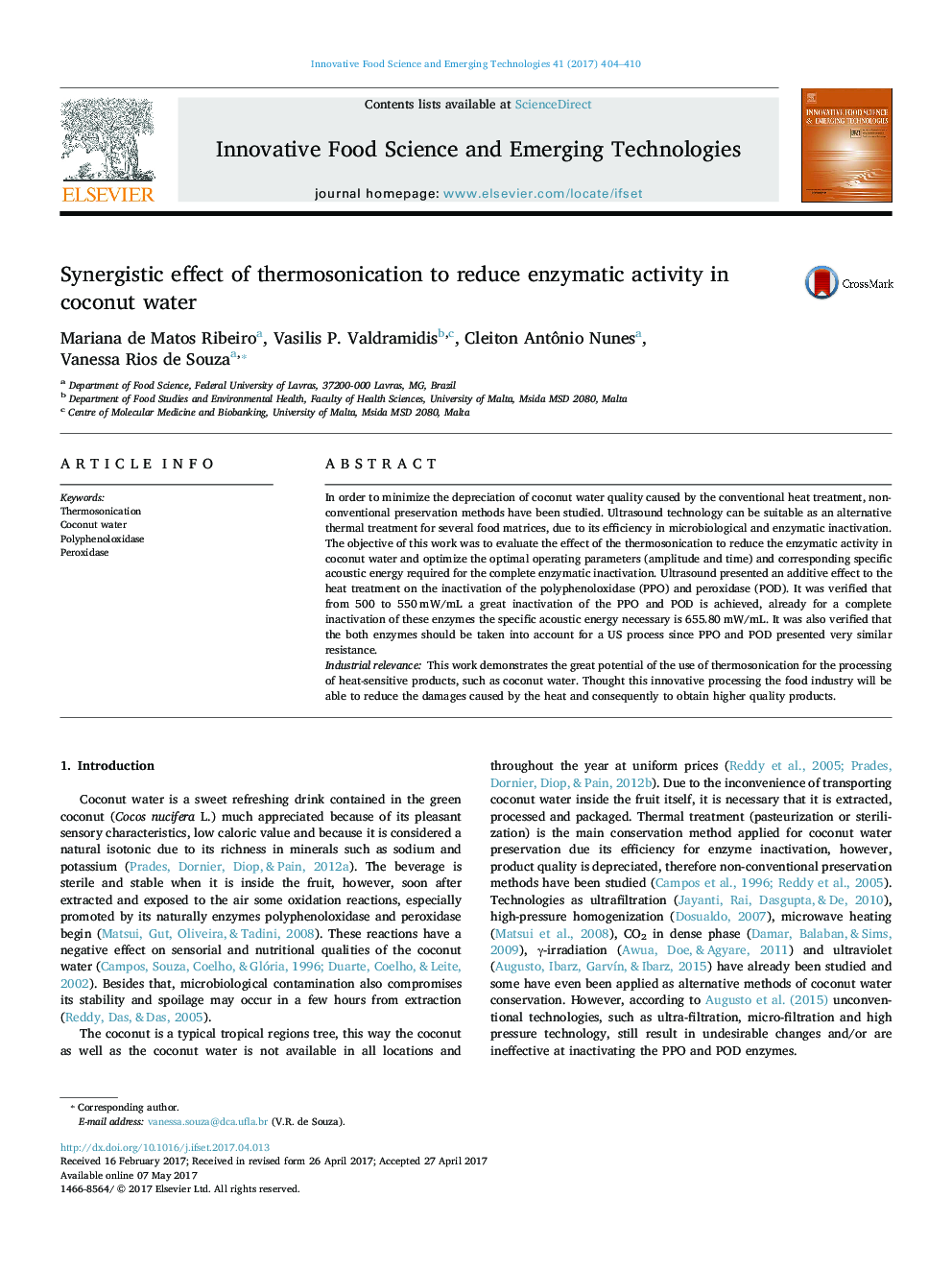| Article ID | Journal | Published Year | Pages | File Type |
|---|---|---|---|---|
| 5521781 | Innovative Food Science & Emerging Technologies | 2017 | 7 Pages |
â¢Ultrasound acts synergistically with heat on the enzymatic inactivation.â¢Specific acoustic energy of 500-550 mW/mL can significantly decrease PPO and POD activity.â¢To achieve the complete inactivation of the coconut enzymes the specific acoustic energy necessary is 655.80 mW/mL.
In order to minimize the depreciation of coconut water quality caused by the conventional heat treatment, non-conventional preservation methods have been studied. Ultrasound technology can be suitable as an alternative thermal treatment for several food matrices, due to its efficiency in microbiological and enzymatic inactivation. The objective of this work was to evaluate the effect of the thermosonication to reduce the enzymatic activity in coconut water and optimize the optimal operating parameters (amplitude and time) and corresponding specific acoustic energy required for the complete enzymatic inactivation. Ultrasound presented an additive effect to the heat treatment on the inactivation of the polyphenoloxidase (PPO) and peroxidase (POD). It was verified that from 500 to 550Â mW/mL a great inactivation of the PPO and POD is achieved, already for a complete inactivation of these enzymes the specific acoustic energy necessary is 655.80Â mW/mL. It was also verified that the both enzymes should be taken into account for a US process since PPO and POD presented very similar resistance.Industrial relevanceThis work demonstrates the great potential of the use of thermosonication for the processing of heat-sensitive products, such as coconut water. Thought this innovative processing the food industry will be able to reduce the damages caused by the heat and consequently to obtain higher quality products.
